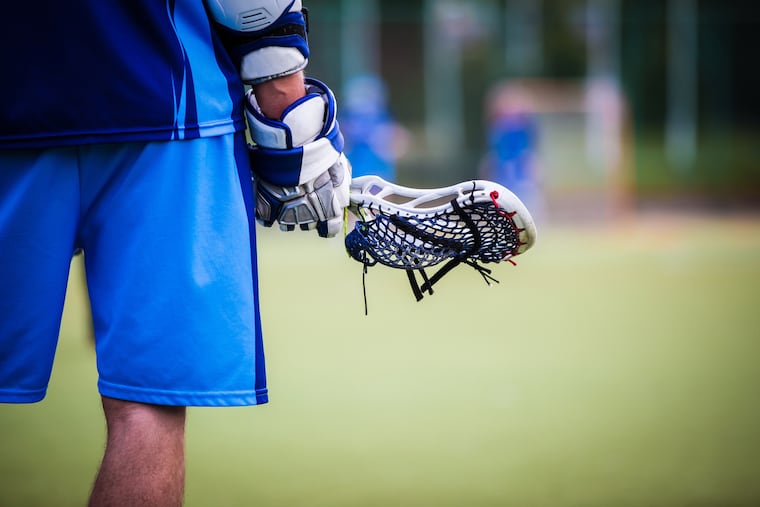Lacrosse coaches say athletes’ mental health needs as much care as physical injuries
About 7,000 coaches, athletic trainers, researchers, and players from across the country converged in Philadelphia for the annual U.S. Lacrosse convention.

Yeardley Love, a student at the University of Virginia from Baltimore, was a dedicated lacrosse player known for a sunny disposition and her work to help those in need.
She was also the victim of domestic violence, killed nearly nine years ago by her ex-boyfriend. Last weekend, her story again took center stage at the Sports Medicine Symposium part of the annual U.S. Lacrosse convention at the Convention Center, where coaches, trainers, officials, and players talked not just about their sport, but also about the stresses athletes can face.
Too many times, experts said, athletes try so hard to project an image of strength that their serious problems — from intimate partner violence to substance abuse — can go unaddressed.
Leading up to Love’s death, there were arguments with her boyfriend, angry text messages and calls, and assault allegations that went unreported.
“No one put the pieces of puzzle together to prevent her death,” said Seanna Crosley, spokesperson for One Love Foundation, started by Love’s family.
Students, players, and coaches need to know how to help someone who is at risk of violence.
“This isn’t a woman’s issue, it’s an everyone’s issue,” she said.
The signs of an abusive relationship include jealousy, isolating the partner from friends or family, controlling or manipulating them, and bullying. And it can escalate to physical abuse. Victims of relationship abuse are also at risk for self-harm, suicide, eating and mood disorders, and substance abuse and binge drinking, Crosley said.
Knowing the signs is only the beginning, Crosley said. It is important for everyone to know how to start a difficult conversation in a positive way, she said.
“We need to break down barriers and talk about relationship abuse,” Crosley said.
Timothy Holt, a former college lacrosse player who is in recovery from heroin addiction, told the audience people also need to be able to recognize the signs of addiction in a sports culture that includes binge drinking and drug use.
“Looking back on my life, I didn’t think this was what a heroin athlete looked like,” Holt said of himself. “I couldn’t have been more wrong.”
Holt, now studying for a master’s degree in social work at Sacred Heart University, said that as a youth, lacrosse was his life. He played intramurals, attended camps, joined select leagues, and ended up on his high school varsity team. He knew not only how to play hard on the field at his Wilton, Conn., high school but also how to party hard off the field, he said.
At age 14, he tried marijuana. By senior year he was getting high every day and had used other drugs, including oxycodone. A lot of people were aware he was smoking weed and partying, he said, but ignored the behavior.
“What’s more insane to me is that they let it slide,” he said.
Holt “barely” made it through college, and got a job in New York City, where he started using heroin. In a short time, he was homeless and back in Connecticut.
Holt acknowledged he was stubborn and hard to reach, and drove his parents — who sent him to a number of drug treatment programs — crazy.
He talked openly about the part of the lacrosse culture that includes binge drinking and drug use even on teams with a record of success.
“I would like to see what these teams can do if they were not binge drinking,” he said.
Having the conversation about substance abuse takes courage, said Nina Walker, an athletic trainer at the University of North Carolina at Chapel Hill and one of the presenters. Coaches and trainers are in a position to create unique relationships with athletes and raise those tough topics, she said.
If there was a physical injury, they wouldn’t hesitate to intervene, Walker said. Ask what could happen if you don’t intercede, she added.